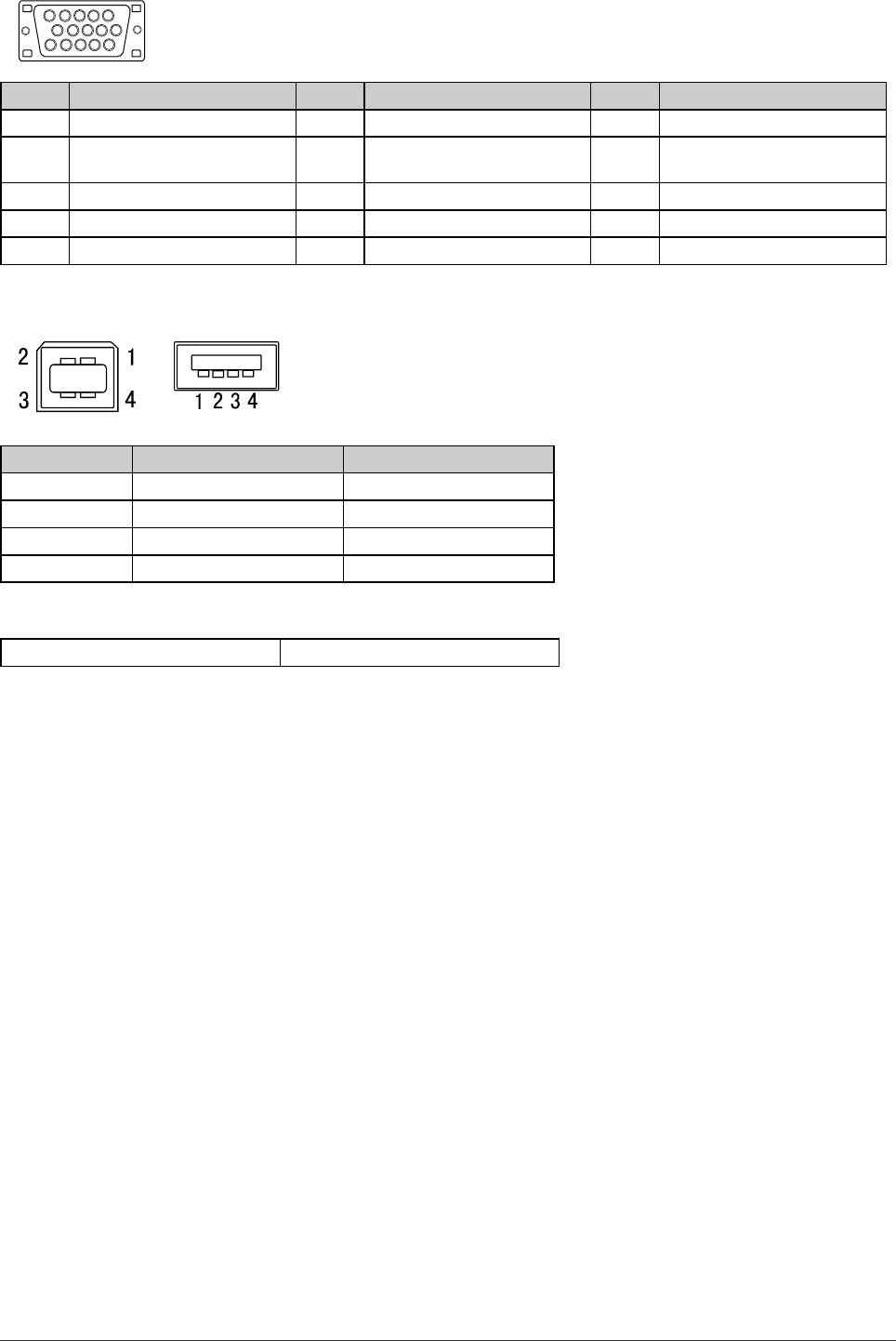
29
Chapter 5 Reference
• D-sub mini 15-pin connector
5
1
3
4
2
8
7
6
9
10
12
1314
15
11
Pin No.
Signal
Pin No.
Signal
Pin No.
Signal
1 Red 6 Red ground 11 (Short-circuited to pin 10)
2 Green 7 Green ground 12 Data (SDA)
3 Blue 8 Blue ground 13 H. Sync
4 Ground 9 NC 14 V. Sync
5 NC 10 Ground 15 Clock (SCL)
• USB port
Upstream Downstream
Contact No. Signal Remarks
1 VCC Cable power
2 – Data Serial data
3 + Data Serial data
4 Ground Cable ground
Option List
Cleaning Kit EIZO ScreenCleaner
5-4 Glossary
Clock
The analog input monitor needs to reproduce a clock of the same frequency as the dot clock of the graphics system in
use, when the analog input signal is converted to a digital signal for image display.
This is called clock adjustment. If the clock pulse is not set correctly, some vertical bars appear on the screen.
DVI (Digital Visual Interface)
DVI is a digital interface standard. DVI allows direct transmission of the PC’s digital data without loss.
This adopts the TMDS transmission system and DVI connectors. There are two types of DVI connectors. One is
a DVI-D connector for digital signal input only. The other is a DVI-I connector for both digital and analog signal
inputs.
Gain
This is used to adjust each color parameter for red, green and blue. An LCD monitor displays the color by the light
passing through the panel color fi lter. Red, green and blue are the three primary colors. All the colors on the screen
are displayed by combining these three colors. The color tone can be changed by adjusting the light intensity (volume)
passing through each color’s fi lter.
Gamma
Generally, the monitor brightness varies nonlinearly with the input signal level, which is called “Gamma
Characteristic”. A small gamma value produces a low-contrast image, while a large gamma value produces a high-
contrast image.


















